The condition in which the body loses more water than it takes in – whether through sweating, urinating, or breathing — is known as Dehydration. The fluid needs to be replaced to rehydrate your body to avoid dehydration. But how do you know when this occurs? There are certain warning signs of dehydration you shouldn’t ignore.
According to the U.S. National Academies of Sciences, Engineering, and Medicine, a healthy water intake for men is 15.5 cups and 11.5 cups for women. Although amounts typically vary from person to person, depending on individual circumstances, you generally should know what your body needs. Yet, there are instances where you may not even realize that you aren’t getting enough water and may be dehydrated.
Many people may choose to wait until they feel thirsty to drink water. This is a certain sign of dehydration but it is not always among the first ones. By the time you feel a need to drink water, you are already dehydrated. The goal is to avoid that. The question is how much water a person should drink a day to prevent dehydration.
Chances are you’ve heard that eight 8-ounce glasses a day will do the trick. While there is nothing wrong with that advice, it may not apply to everyone. There is no one-size-fits-all when it comes to water consumption. It depends on an individual’s size, physical activity, type of diet, overall health, and even place of residence — living in a warm climate almost certainly means you might need more water.
Just as the earlier totals recommended, the Institute of Medicine also advises that a total water intake from all foods and liquids be at 3.7 liters (125 ounces) for men and 2.7 liters (91 ounces) for women, according to the Centers for Disease Control and Prevention.
About 60% of an adult’s body is made of water, which may explain why water is so important to every organ’s proper functioning. Water protects the tissues and joints, keeps the body’s temperature normal, and helps it get rid of waste. When it needs more water, your body lets you know in several ways. It also has signs of a serious health problem — such as biting nails and other habits.
Don’t Ignore These Warning Signs of Dehydration
Dry mouth
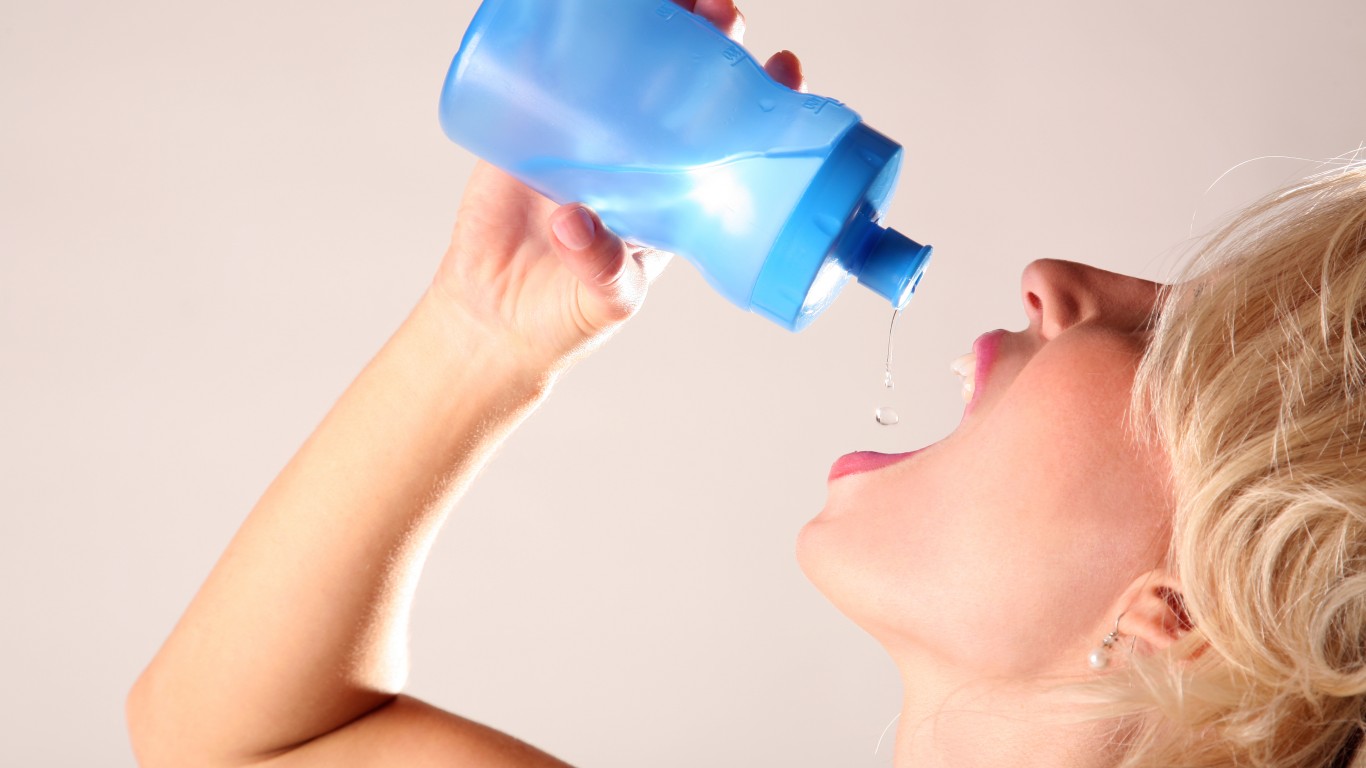
Dry mouth, scientifically known as xerostomia, is when the salivary glands don’t make enough saliva, which helps prevent tooth decay, limits bacterial growth, improves digestion, and cleans the mouth. It is a common side effect of certain medications, but very commonly, it is one of the first signs of dehydration. Drinking water often will help keep the mouth moist.
Disrupted sleep
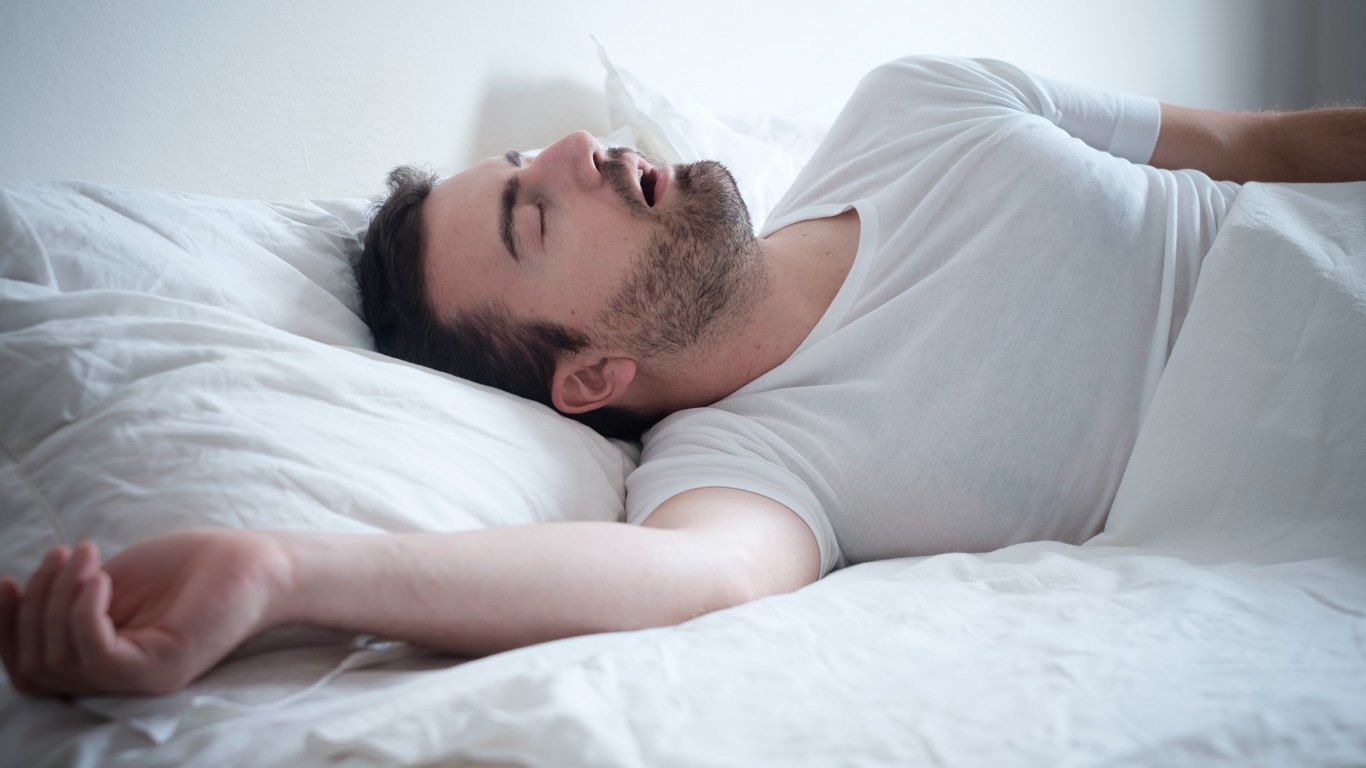
If you find yourself waking up in the middle of the night for no apparent reason, you may need to drink some water. Even mild dehydration dries out the mouth and nasal passages, which can lead to snoring and hoarseness in the morning, according to the National Sleep Foundation. It’s common to lose fluid during sleep by simply breathing, especially if you breathe through the mouth. Your body can sustain a lot of damage when you don’t sleep well.
Dark yellow urine
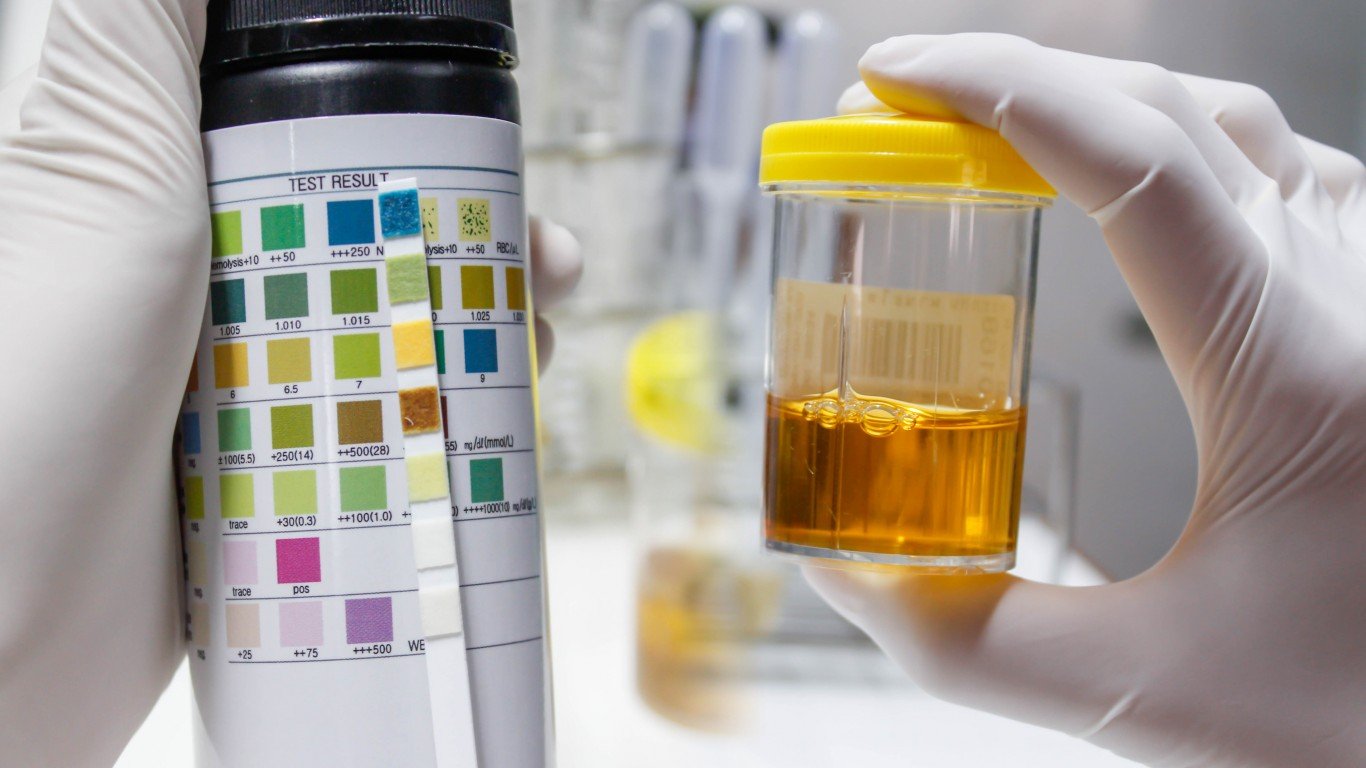
The general rule of thumb is that the lighter the color of your urine, the more hydrated you are. The darker it is, the more dehydrated you are, provided you are not on any medications and are in good general health. This is because fluids dilute the yellow pigments in urine. So if you don’t drink enough water, the yellow color will be more concentrated.
Dizziness
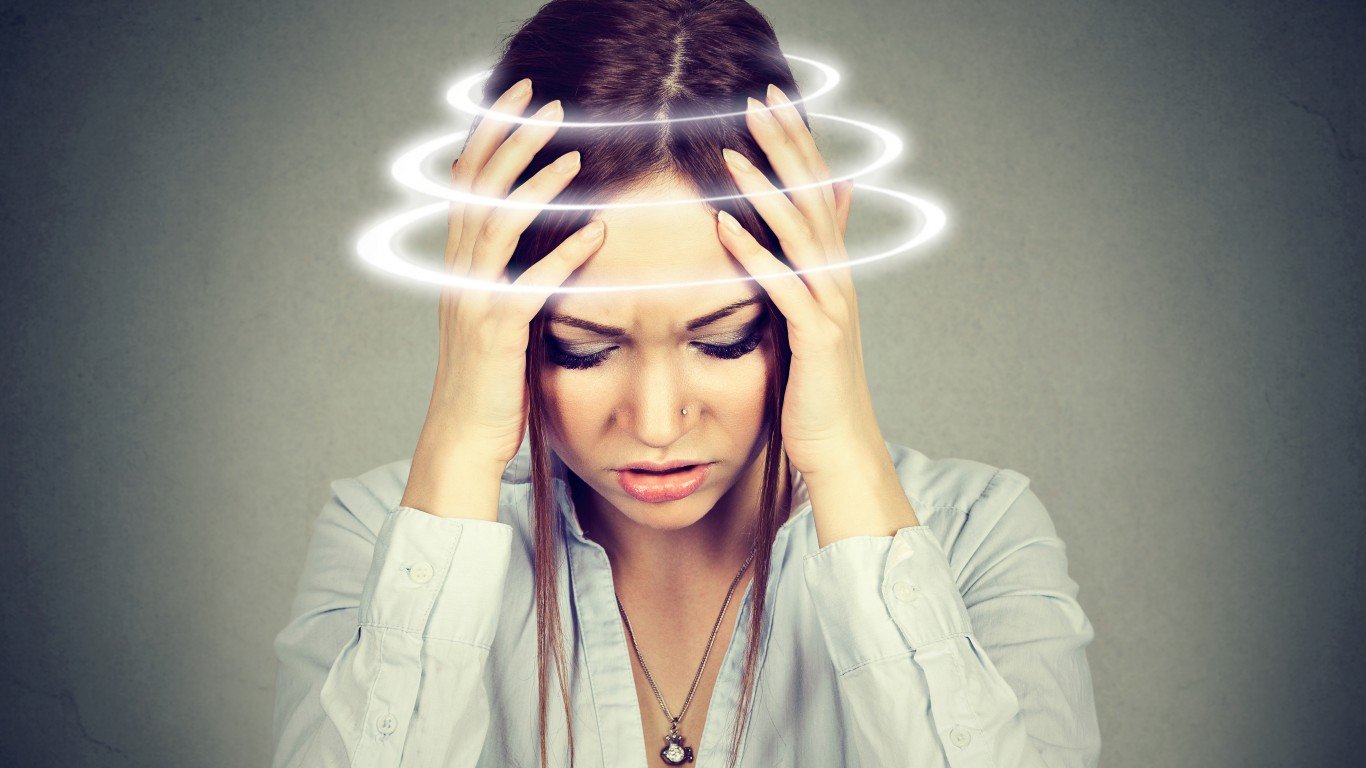
Not enough fluids in the body means the volume of blood in your body goes down. This can lead to a drop in blood pressure, which may result in the brain not getting enough blood and oxygen, leading to lightheadedness and dizziness. The condition of low blood pressure is not always caused by dehydration.
Headache
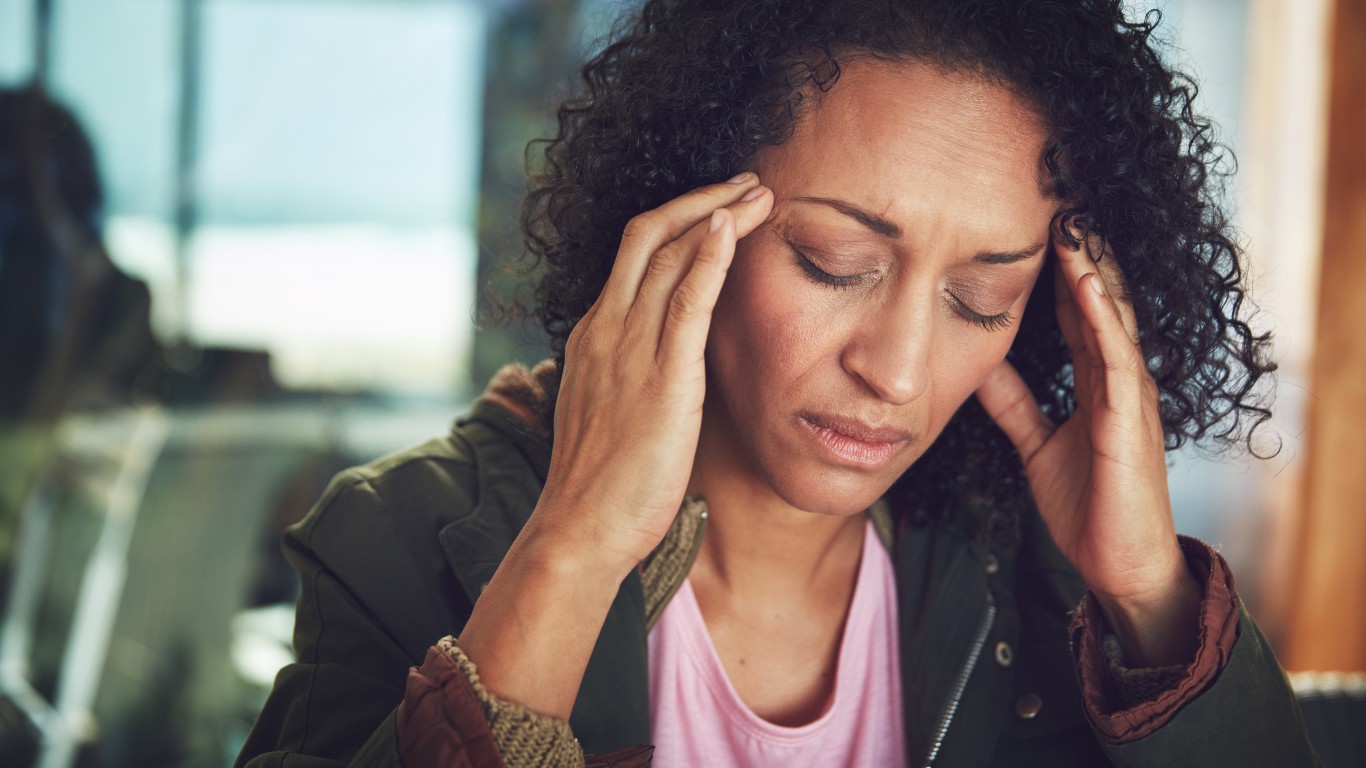
Dehydration is a very common reason for headaches. Mild or severe headaches, and even migraines, can be triggered by not enough water because the body doesn’t have enough electrolytes to function properly. Scientists are not exactly sure why dehydration causes headaches. One conjecture is that blood vessels may narrow, making it harder for oxygen and blood to get to the brain, causing a headache. Headaches can also be a sign of other serious conditions — it’s among the 25 symptoms people always ignore but never should.
Rapid heart rate
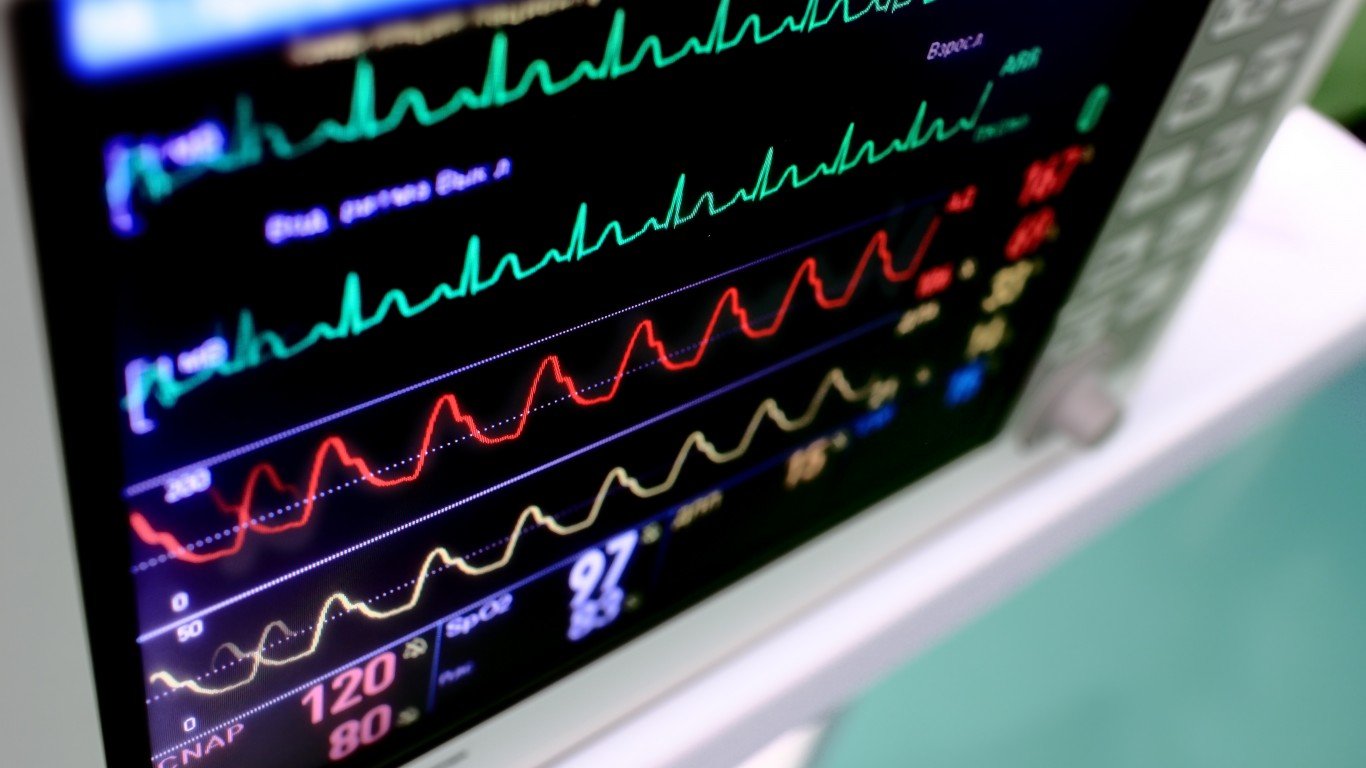
Another sign of dehydration is an increase in heart rate. This is caused by the fact the body doesn’t have as much blood circulating. Blood volume is lower, and the heart beats faster to compensate, causing an increase in heart rate. This is why you may feel palpitations.
Unusual fatigue
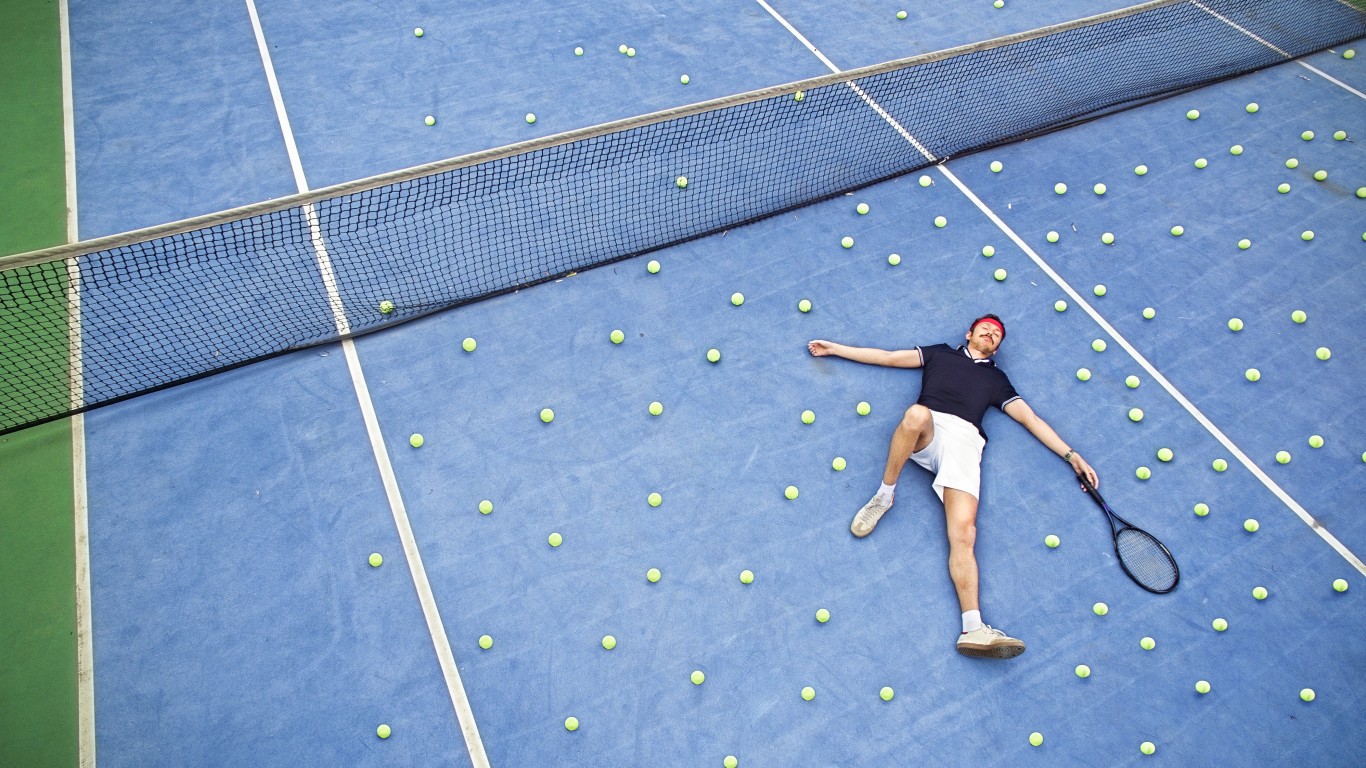
If you sleep well but for some reason always feel tired, the reason could be as simple as not having enough water. The rule of thumb is to have at least two glasses of water every hour, according to WebMD. What’s making you feel tired may be the fact that your heart is working harder to pump blood to compensate for the loss of volume of blood due to dehydration. Also, your muscles lack water, so performing any physical tasks can feel like a lot of work. Feeling tired all the time may also be signs of a serious health problem.
Sunken eyes or cheeks

If the skin under your eyes looks dark, sunken, or hollow, you should probably drink some water. Dehydration is a very common cause of sunken eyes. Fluid retention under the eyes may lead to extra “baggage” and for the skin to become more transparent, letting blood vessels and dark tissue underneath show. This can also be lesser-known symptoms of an allergic reaction to something serious.
Confusion

A study on the effects of dehydration on cognitive performance and mood among young men showed that even mild dehydration can lead to confusion, decreased vigilance, and poor working memory. Next time you take a few too many seconds to answer a simple question or look at a picture without understanding what you’re seeing, drink some water and try again. Find out what else leads to memory loss.
Muscle cramps
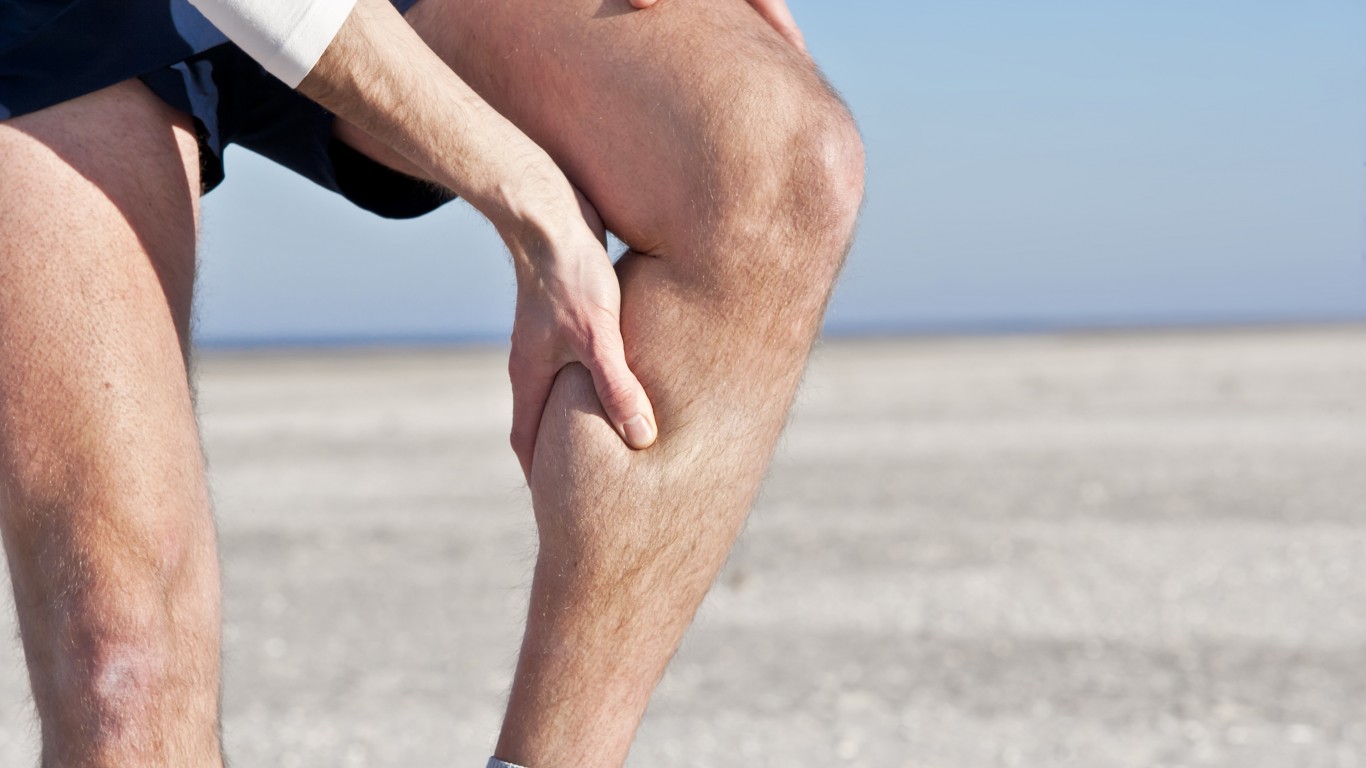
Most muscle cramps develop in the calves, and they are painful. The sudden and sharp pain you feel may have been prevented if you drank more water. Water helps muscles contract and relax. Lack of it puts a strain on them. When the blood flow to the muscle is reduced it can cause cramp-like pain.
Constipation
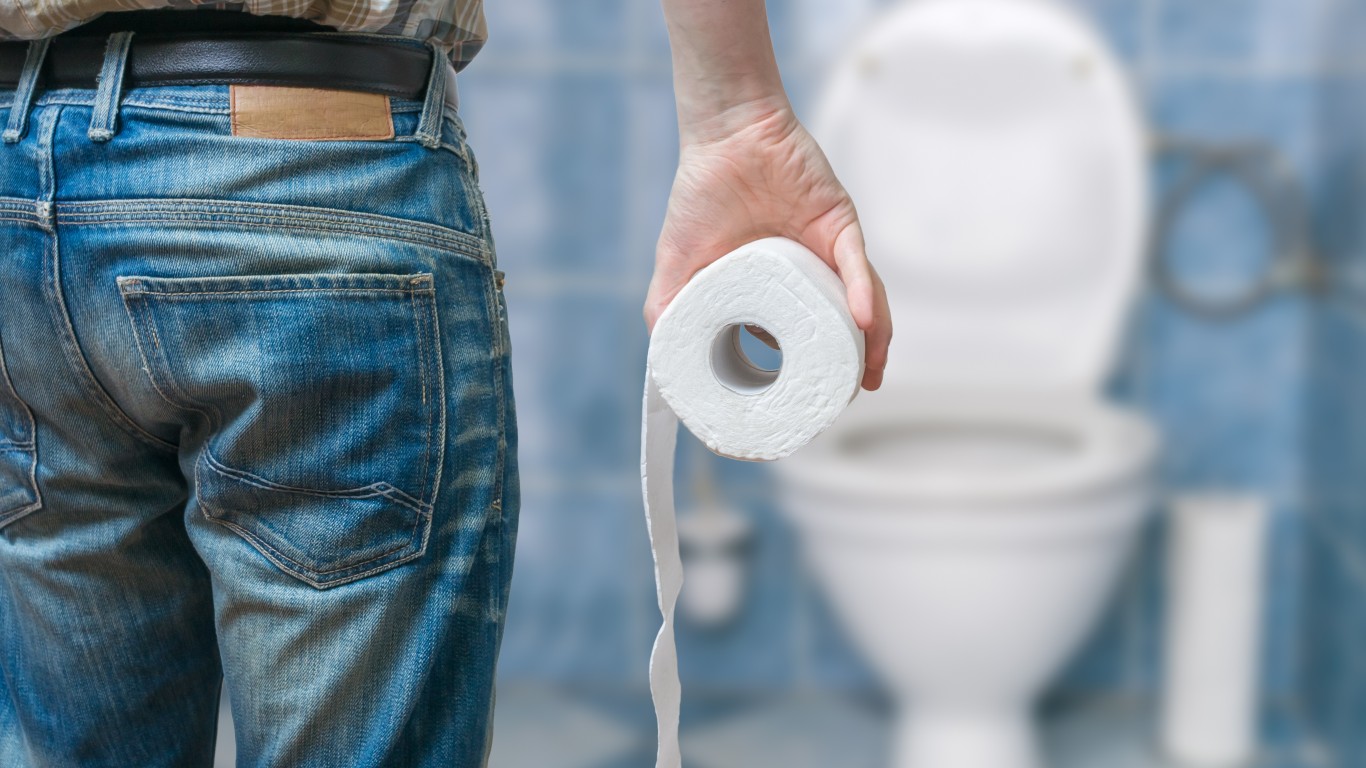
Before your doctor tells you to take a laxative, he or she may first tell you to drink a lot of water. It’s key for smooth digestion as it helps keep the food moving through the colon. Not having enough water in the body may result in the large intestine soaking up water from processed food. This can result in hard stools and constipation. You may have heard about the effects of coffee on bowel movement, but recent research suggests we may have been wrong about their connection for years.
Sugar cravings

Dehydration may cause problems for all organs, including the liver, which stores and releases glycogen, or glucose. This is the sugar your body uses for energy. The body may then crave something sweet for a quick energy boost. Craving something sweet may be a sign your body needs more water.
Chapped lips
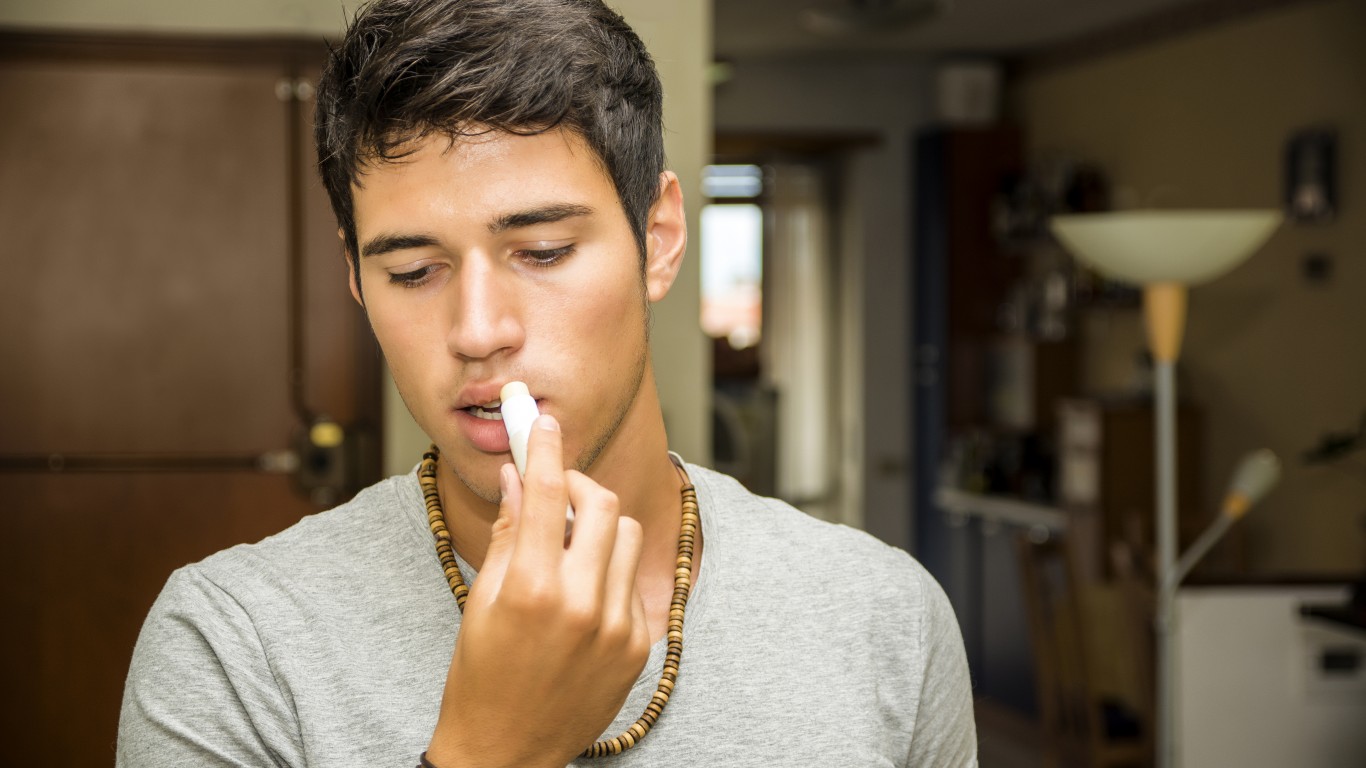
Chapped lips can be caused by weather or sun exposure, certain medications or cosmetics, as well as some skin conditions. Experiencing chapped lips may also be one of the first signs you’re body isn’t getting enough water. The skin on the lips is very thin and it has no oil. So when the little water it has is lost, the skin is prone to cracking.
Wrinkles are possible, too, because water helps plump the skin internally. One particular study showed that skin health improved the most in individuals who changed their drinking habits from less than to more than 2 liters per day. Drinking more water is just one of several things dermatologists want you to do to protect your skin.
